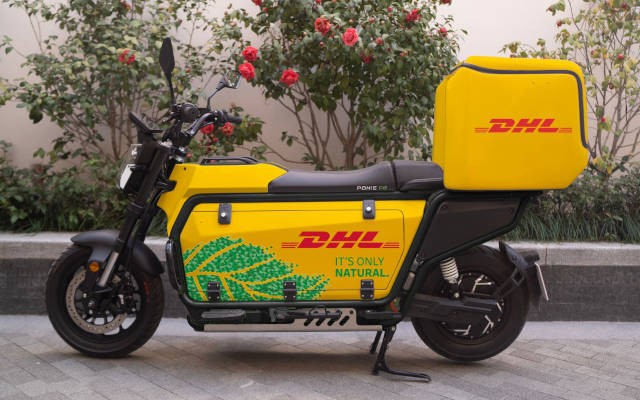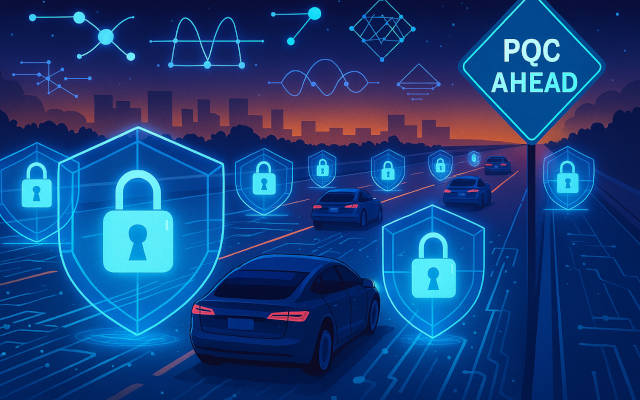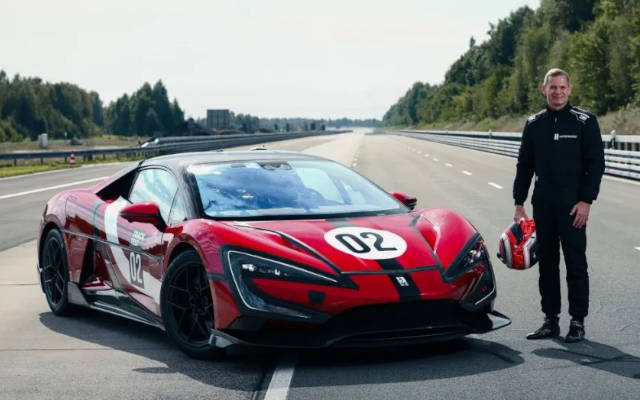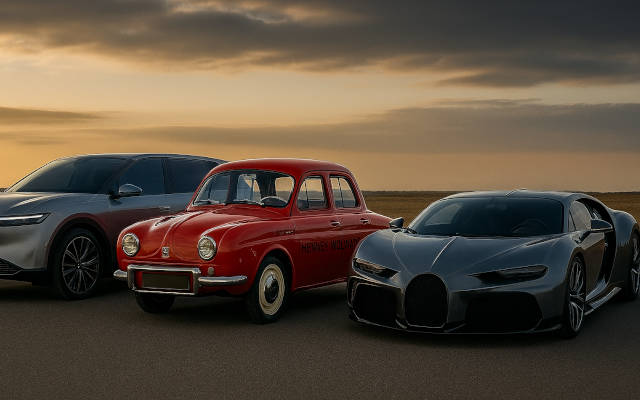 EDITOR'S PICK
EDITOR'S PICK
PNY Electric Cargo Scooter Completes Successful Multi-Location Last-Mile Delivery Trials
01 Oct 2025 | Synopsis
 PNY's Ponie P2, the world's first electric cargo motorcycle, completed successful trials across Tel Aviv, Milan, and other urban locations with partners like DHL and postal services. Manufactured in Israel, the P2 features a top speed of 100 km/h, high payload capacity, modular cargo options, and a 160 km range. Compared to gas-powered delivery vehicles used by Wolt - a Finnish delivery platform - it offers lower fuel and maintenance costs, making it a cost-effective, zero-emission solution for last-mile logistics.
PNY's Ponie P2, the world's first electric cargo motorcycle, completed successful trials across Tel Aviv, Milan, and other urban locations with partners like DHL and postal services. Manufactured in Israel, the P2 features a top speed of 100 km/h, high payload capacity, modular cargo options, and a 160 km range. Compared to gas-powered delivery vehicles used by Wolt - a Finnish delivery platform - it offers lower fuel and maintenance costs, making it a cost-effective, zero-emission solution for last-mile logistics.Post-Quantum Security and the Electric Car: What Drivers Need to Know
01 Oct 2025 | Synopsis
 Post-quantum security protects electric vehicles from future quantum threats that could break current encryption. As EVs rely on secure software updates, telemetry, and identity systems, automakers are adopting quantum-resistant algorithms. With NIST's 2024 standards and cloud providers piloting migration, the shift is underway to safeguard long-lived vehicles and data. Drivers may not notice, but it's vital for safety and trust.
Post-quantum security protects electric vehicles from future quantum threats that could break current encryption. As EVs rely on secure software updates, telemetry, and identity systems, automakers are adopting quantum-resistant algorithms. With NIST's 2024 standards and cloud providers piloting migration, the shift is underway to safeguard long-lived vehicles and data. Drivers may not notice, but it's vital for safety and trust.The Yangwang U9 Xtreme: When China Rewrites the Speed Record Books
01 Oct 2025 | Synopsis
 The Yangwang U9 Xtreme, BYD's electric hypercar, shattered the production speed record at 308.4 mph, surpassing Bugatti. Powered by a quad-motor e4 Platform delivering nearly 3,000 hp, it combines extreme speed with advanced torque vectoring and active suspension. Only 30 units will be built. Yangwang, a new Chinese luxury brand, signals China's rise in EV performance, challenging legacy supercar makers on their own turf.
The Yangwang U9 Xtreme, BYD's electric hypercar, shattered the production speed record at 308.4 mph, surpassing Bugatti. Powered by a quad-motor e4 Platform delivering nearly 3,000 hp, it combines extreme speed with advanced torque vectoring and active suspension. Only 30 units will be built. Yangwang, a new Chinese luxury brand, signals China's rise in EV performance, challenging legacy supercar makers on their own turf.When Speed Sucks - The Quiet History of Vacuum Cleaner EVs
01 Oct 2025 | Synopsis
 Three vacuum cleaner companies—Henney, Dyson, and Dreame—each tried to build electric vehicles. Henney's Kilowatt (1959) was a 60-mile-range utility EV built on Renault gliders. Dyson's N526 SUV promised 600 miles and luxury tech but was canceled after £500M due to cost. Dreame now aims to launch a Bugatti-style hypercar by 2027. All pursued innovation through motor expertise, but only Dreame's dream still lives.
Three vacuum cleaner companies—Henney, Dyson, and Dreame—each tried to build electric vehicles. Henney's Kilowatt (1959) was a 60-mile-range utility EV built on Renault gliders. Dyson's N526 SUV promised 600 miles and luxury tech but was canceled after £500M due to cost. Dreame now aims to launch a Bugatti-style hypercar by 2027. All pursued innovation through motor expertise, but only Dreame's dream still lives.Fossil Fuels and Fossilized Minds
30 Sep 2025 | Synopsis
 Republican Party's zealous defense of fossil fuels (like coal) and opposition to clean energy are deeply irrational and driven by "fossilized stupidity" and political tribalism, not economic sense or scientific reality. Nobel Prize-winning economist Paul Krugman asserts that this stance ignores the rapid technological progress making renewables competitive and the urgent need to address climate change, effectively embracing a "death wish" for the planet to appease special interests.
Republican Party's zealous defense of fossil fuels (like coal) and opposition to clean energy are deeply irrational and driven by "fossilized stupidity" and political tribalism, not economic sense or scientific reality. Nobel Prize-winning economist Paul Krugman asserts that this stance ignores the rapid technological progress making renewables competitive and the urgent need to address climate change, effectively embracing a "death wish" for the planet to appease special interests.
 Si Exclusive
Si Exclusive
Hydrogen's Flight Path: Fuel Cells, Turbines, and the Economics of Clean Aviation
10 Oct 2025 |  Aviation is shifting from Jet A to four fuel systems: electricity, hydrogen (fuel cell and combustion), SAF, and petroleum. Fuel cells suit short-haul aircraft; hydrogen combustion may power long-range jets. SAF bridges legacy fleets. Hydrogen costs - $5-$7/kg today, possibly $2/kg by 2040 - impact ticket prices and infrastructure decisions. Airport authorities, airlines, and governments will share deployment costs. Each fuel has distinct environmental pros and cons shaping aviation's net-zero future.
Aviation is shifting from Jet A to four fuel systems: electricity, hydrogen (fuel cell and combustion), SAF, and petroleum. Fuel cells suit short-haul aircraft; hydrogen combustion may power long-range jets. SAF bridges legacy fleets. Hydrogen costs - $5-$7/kg today, possibly $2/kg by 2040 - impact ticket prices and infrastructure decisions. Airport authorities, airlines, and governments will share deployment costs. Each fuel has distinct environmental pros and cons shaping aviation's net-zero future.
 10 Oct 2025 23:30:53 UTC |
RECENT PODCASTS
BYD Soars - Cheaper Tesla Models - The Bolt is Back - Rivian
SEARCH RSSTREAM
 53 New Postings In Past 24 Hours
53 New Postings In Past 24 Hours
Category:finance
Region:NoAmerica
Date:10 Oct 2025
Category:policy
Region:NoAmerica
Date:10 Oct 2025
Category:mobility
Region:AsiaPacific
Date:10 Oct 2025
Category:mobility
Region:AsiaPacific
Date:10 Oct 2025
Category:finance
Region:NoAmerica
Date:10 Oct 2025
Category:finance
Region:IndoAsia
Date:10 Oct 2025
Category:energy
Region:Global
Date:10 Oct 2025
Category:energy
Region:NoAmerica
Date:10 Oct 2025
Category:finance
Region:NoAmerica
Date:10 Oct 2025
Category:finance
Region:Global
Date:10 Oct 2025